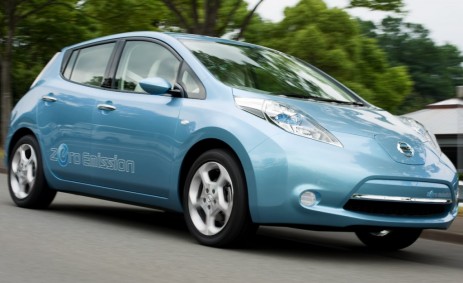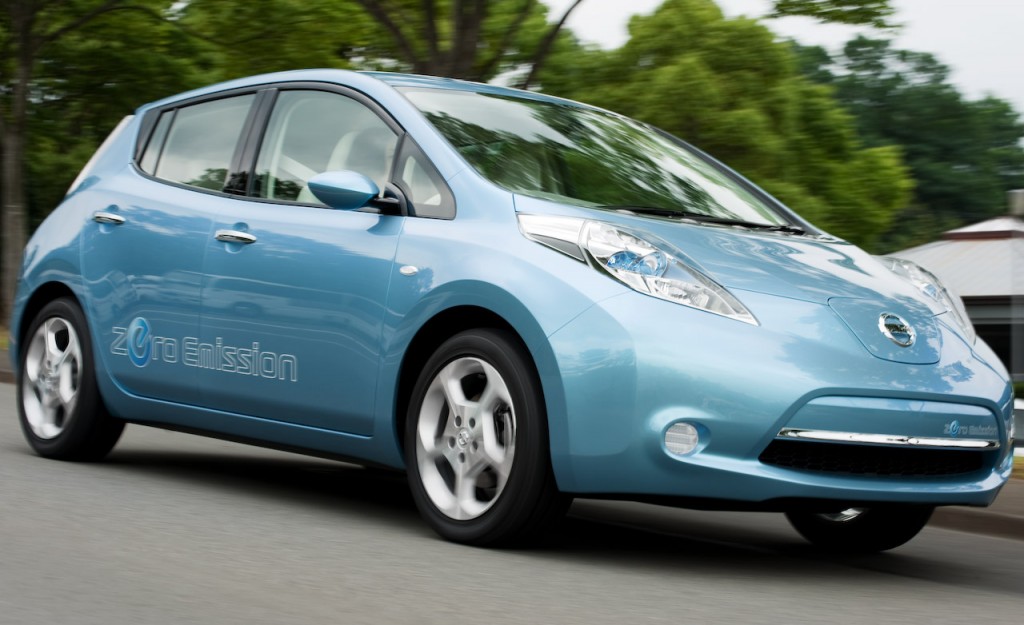 Too rich for your blood? Try a rental.Judging by the comments on my previous post comparing the Chevrolet Volt plug-in hybrid and Nissan Leaf electric car, more than a few readers are suffering sticker shock at the price of greening their rides.
Too rich for your blood? Try a rental.Judging by the comments on my previous post comparing the Chevrolet Volt plug-in hybrid and Nissan Leaf electric car, more than a few readers are suffering sticker shock at the price of greening their rides.
Now there’s another option for those wanting to take the occasional trip down the electric highway without forking over $41,000 for a Volt or $32,780 for a Leaf (before a $7,500 federal tax incentive).
This week, rental car giant Enterprise Holdings announced it had placed an order for 500 Leafs that will be available in early 2011 at Enterprise Rent-a-Car locations in Phoenix and Tucson, Ariz.; Knoxville and Nashville, Tenn.; San Diego; Los Angeles; Portland, Ore.; and Seattle. (Not coincidentally, those cities are also where Nissan will first roll out the Leaf later this year and where a Department of Energy-funded network of charging stations will be built.)
“There is a lot of conversation and buzz about the electric car and we would like to offer it to our customer base as it comes commercially and economically viable,” Lee Broughton, Enterprise Holdings’ director of sustainability, told me.
Enterprise Holdings also owns Alamo and National Car Rental, but decided to place the Leafs with Enterprise Rent-a-Car as its locations are concentrated in neighborhoods.
“We’re uniquely placed to offer exposure of the electric vehicle to customers,” says Broughton. “When you think about the daily urban commuter, electric cars are in the sweet spot.”
He says Enterprise, which currently offers nearly 7,000 hybrid cars for rent, is also talking to other electric carmakers.
The company has not set a price for renting a Leaf, but Broughton noted that Enterprise’s hybrid fleet commands a slight premium.
“There is a sticker price difference for a vehicle of a similar size simply because of the technology and the infrastructure to support it,” he notes of the Leaf.
Enterprise will qualify for the $7,500 federal tax incentive for each Leaf as well as any available local and state rebates.
Adding cars like the Leaf and the Volt to rental fleets could be an effective way to expose people to electric cars and expand the market. They would also seem ideal for urban car-sharing services like Zipcar, which offer hipsters cool rides like the Mini Cooper and the Prius.
But when I talked to top executives at Zipcar and its competitors earlier this year, I found their enthusiasm tempered by the costs of the first mass-market electric cars and plug-in hybrids and worries about whether a sufficient number of charging stations will be available for their customers.
That could well change over the next year as electric cars begin to proliferate and curious consumers decide the best way to go electric is to do a time-share.




